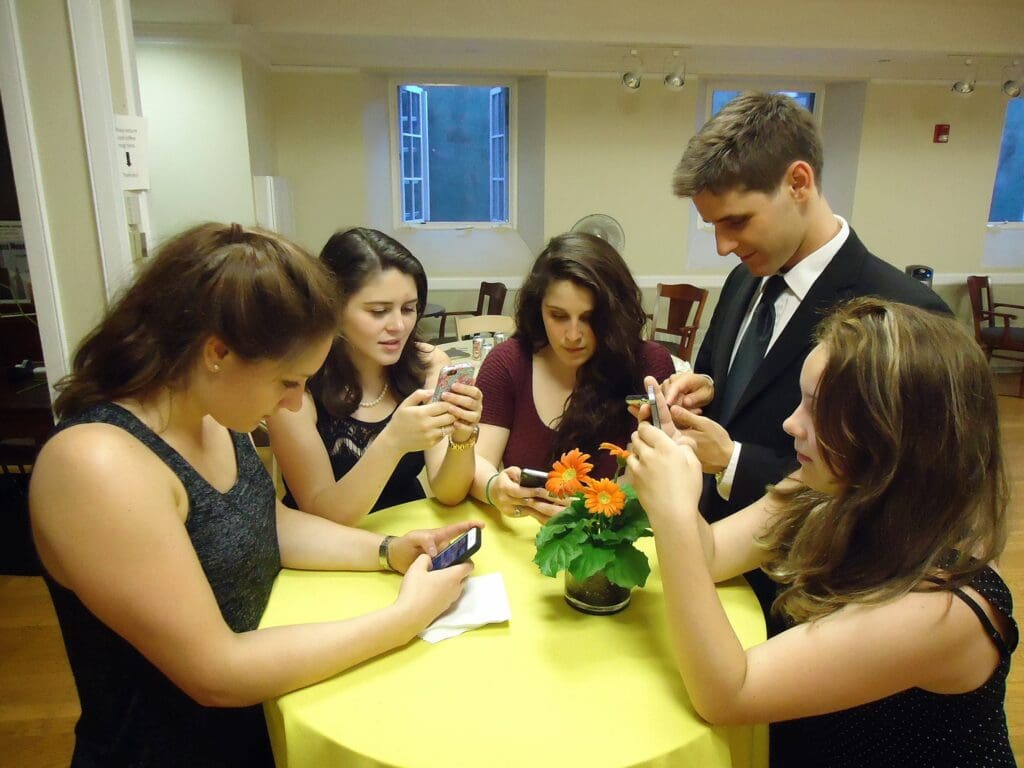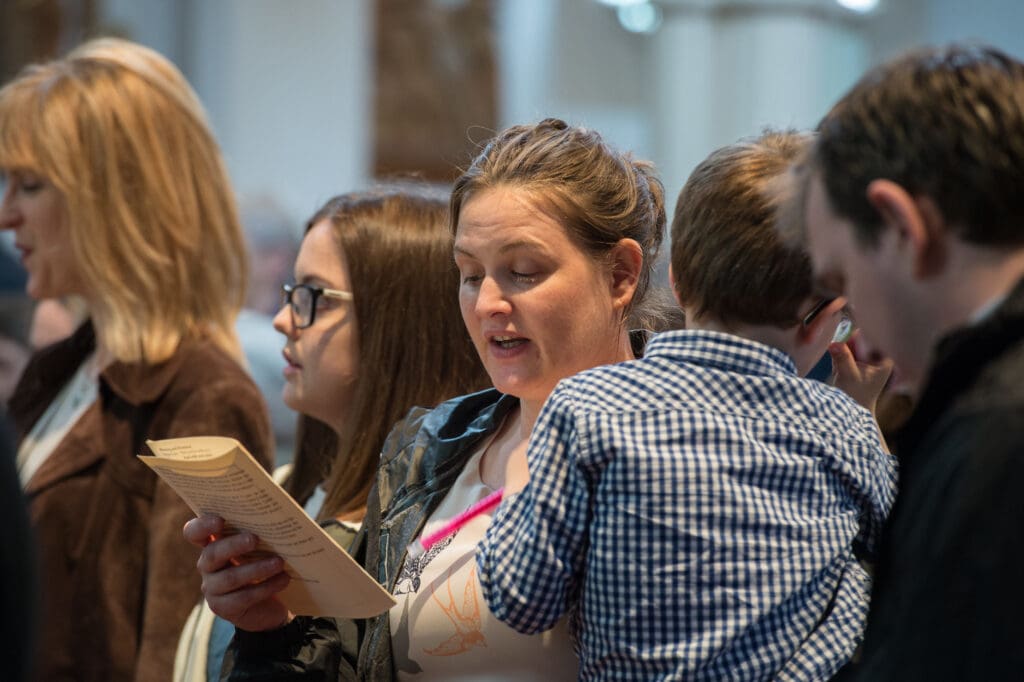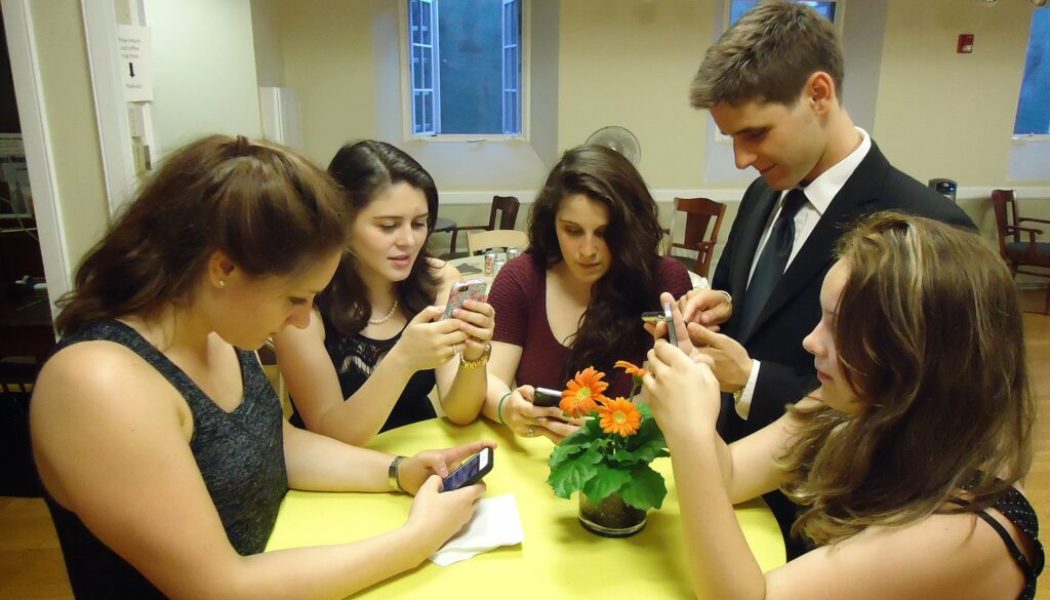In addition to the decline in the belief and understanding of the Real Presence of Jesus Christ in the Holy Eucharist, there has been a decline in the number of sacramental marriages. There were 261,262 marriages in 2000 and 168,400 marriages in 2010. There were 97,200 marriages in 2021.[1] There is no doubt that the recent pandemic has affected the number of marriages, but an alarming number of the faithful are not getting married in the Church (if at all). Similar to the crisis in belief in the Real Presence in the Eucharist, there is a lack of understanding in the significance of the meaning of marriage. Consequently, the hour is overdue to contemplate the mystery of marriage in relationship to the Holy Eucharist.
Pope Benedict XVI notes in his post-synodal apostolic exhortation, Sacramentum Caritatis, that “the Eucharist, as the sacrament of charity, has a particular relationship with the love of man and woman united in marriage. A deeper understanding of this relationship is needed at the present time.”[2] The sacraments of Matrimony and the Holy Eucharist are ordered towards a communion of persons and the virtue of charity. Marriage is the communion of one man and one woman, who become one flesh. The Holy Eucharist is the communion between the communicant and the body, blood, soul, and divinity of Christ. St. John Paul II, who has placed great emphasis on the nuptial character of the Eucharist, stresses the family “finds its foundation and soul of its communion and its mission” in Eucharistic charity.[3]
An alarming number of the faithful are not getting married in the Church (if at all).
Every human person, and by extension every married couple and every family, is made for communion. The call to communion is manifested through a life of self-giving love. The words given by our Lord in the Holy Eucharist at its institution at the Last Supper, “This is my body given for you” (Luke 22:19), are words that we are called to participate in with the very gift of our lives. In the words of St. Paul, we are called to make of our bodies a “living sacrifice” (Romans 12:1). The Fall of Adam and Eve and the pressures of an isolated autonomous culture drive us to offer no sacrifices in favor of the idolization of the self, whose mantra is “This is my body.” The Church proposes the nuptial life for the Christian because it is directed towards a life of self-giving love.
The Catechism of the Catholic Church highlights the nuptial characteristic of Christianity: “The entire Christian life bears the mark of the spousal love of Christ and the Church. Already Baptism, the entry into the People of God, is a nuptial mystery; it is so to speak the nuptial bath, which precedes the wedding feast, the Eucharist.”[4] As we continue in our journey as a Church in the United States to reflect deeply on the mystery and gift of the Holy Eucharist, we cannot ignore the relationship between the Eucharist and the nuptial mystery. The whole Christian life is characterized by nuptiality.
The Holy Eucharist was instituted by Jesus Christ as a way to extend the gift of his Real Presence among us and to perpetuate his sacrifice for us, which culminates in the intimate abiding communion. The realities of presence, sacrifice, and communion are helpful guides as we outline the close relationship between marriage and the Holy Eucharist. Both sacraments participate in these essential characteristics. Marriage is fruitful to the degree in which it roots itself in these aspects of the Eucharist.

Image Source: AB/Tomwsulcer on Wikimedia
Presence for All
Jesus Christ is present within the least of our brothers and sisters, in the word of God, and when two or more are gathered in the name of Jesus Christ. But Christ is present “most especially” in the Holy Eucharist.[5] This Presence is real and substantial in a way in which the other forms of presence are not. In the Nuptial Blessing, there is a prayer that asks that each spouse be a visible sign of God’s presence to the other: “Grant, O Lord, that, as they enter upon this sacramental union, they may share with one another the gifts of your love and, by being for each other a sign of your presence, become one heart and one mind.”[6] The work of being an engaged presence of one person to another is the journey of a lifetime.
In our technocratic age, it becomes increasingly difficult to be present for another person, even those whom we love. Walk into a coffee shop and observe the number of people who are “alone together.”[7] You have a single table of 10 people drinking coffee “together,” but none of them are truly with another person in terms of true presence. We have probably all seen families at restaurants wherein multiple family members are each on their individual devices, so no one is truly present to the other. We have families made up of autonomous individuals, who are “alone together.”
The Fall of Adam and Eve and the pressures of an isolated autonomous culture drive us to offer no sacrifices in favor of the idolization of the self, whose mantra is “This is my body.”
We cannot give what we do not have. The Holy Eucharist teaches how to be present to one another through silence, receptivity, listening, and availability. Think of the response of the farmer, who was seemingly doing nothing before the Blessed Sacrament: “I look at Him, and He looks at me” (see CCC, 2715). Husbands and wives need to look at one another with an actively engaged availability. Fathers and mothers need to be present to their children. All people need to be present to anyone in need. Eucharistic nuptiality provides the precious gift of presence.
Think of the exasperated child who tries to get the attention of a parent on his smartphone. The child continues to cry out to his parent, who claims to be paying attention. Finally, the child says, “No, I need you to look at me with your eyes.” Silent prolonged periods of Eucharistic adoration help us to appreciate the gift of the Real Presence. Learning to be still and to look at the Lord may also help us to abide with other people. Certainly, all married couples need all the grace they can receive to be a sign of God’s presence to one another. The gift of the presence of one spouse for another is essential for spouses to transform their marital life into a “living sacrifice” of love.
Mutual Self-Sacrifice
The sacrifice of Jesus Christ upon the Cross and the sacrificial love of spouses are intimately united. Within the nuptial liturgy, the Church prays: “Through Christ’s paschal sacrifice, by which he loved the Church and presented her to you washed clean in his Blood, you mystically foreshadowed the fullness of wedded love in the Sacrament of Matrimony.”[8] Sacrifice is not about destruction, but it is about a complete gift of one’s self in love. Self-giving love is the hallmark of the sacrifice that one spouse is called to give to another. Husbands and wives will experience joy within the marriage vocation to the degree that they can reecho the words of Christ to one another: “This is my body given up for you” (Luke 22:15).
The faithful are not called to be passive spectators in the paschal sacrifice of Christ. Every Christian is called to participate actively in the sacrifice of Christ. The priest celebrating the Holy Eucharist makes clear the unity between sacrifice of the faithful with the sacrifice of Christ:
Pray, brethren,
That my sacrifice and yours
may be acceptable to God,
the almighty Father (emphasis added).
The sacrificial love of Christ upon the Cross and in the Holy Eucharist is the foundation for the authentic sacrificial love of the spouses.
Each and every day, spouses must die to themselves for the sake of the other. With their words and actions, they must be constantly cognizant of the needs of the other. Marital and family communion can only be preserved by sacrifice. St. John Paul II notes that the spirit of sacrifice within the domestic church is characterized by “ready and generous openness of each and all to understanding, to forbearance, to pardon, to reconciliation.” The reality is, John Paul II continues, that every family knows “how selfishness, discord, tension and conflict violently attack and at times mortally wound its own communion: hence there arise the many and varied forms of division in family life.” The spirit of sacrificial love that flows out of the Eucharist is essential for communion.
A fruitful marriage cannot be built upon the foundation of “me” before “thee.” A spirit of selfishness is inimical to the selfless love at the core of the marriage vocation. The Holy Eucharist is the embodiment of the generous charity that should mark the love of one spouse for another. Spouses should examine the obstacles that get in the way of authentic generosity. Above all, husbands and wives should ask themselves how can they become as selfless as Christ so that his sacrifice truly becomes their sacrifice.

Consummate Communion
Conjugal love is consummated in the unity of husband and wife. St. John Paul II comments that conjugal love “aims at a deeply personal unity, the unity that, beyond union in one flesh, leads to forming one heart and soul; it demands indissolubility and faithfulness in definitive mutual giving; and it is open to fertility (cf. Humanae vitae).”[9] Marriage is ordered by its nature to communion that is characterized by the love of the spouses and openness to the gift of human life.
The Holy Eucharist is the ultimate source of charity and life. In his Bread of Life discourse, Jesus characterizes the Eucharist as the source of eternal life: “The bread which I shall give for the life of the world is my flesh” (John 6:51). The Eucharist is also a sacramental sign of the indissoluble communion of love that marriage is intended to be from the beginning.[10] The Eucharist, as a source of unity, models for the spouses the communion that each husband and wife is called to grow into more deeply and more intimately with each passing day. St. John Paul II notes that spouses are “called to grow continually in their communion through day-to-day fidelity to their marriage promise of total mutual self-giving.”[11]
Marital and family communion can only be preserved by sacrifice.
Husband and wife are no longer two but have been forged into one flesh through mutual consent. Within the nuptial liturgy, the Church prays for an outpouring of grace upon “the union of Marriage” that the spouses “may be bound together in mutual affection, in likeness of mind, and in shared holiness.”[12] In contrast with the reigning autonomous individualism of modern culture, authentic Christian culture is built upon the foundation of communion as an essential feature of married life. Spouses are called to pursue the vocation of holiness together.
The Holy Eucharist is a visible sign of the invisible gift of grace that is essential for unity within the Body of Christ. Similarly, communion between husband and wife cannot be achieved solely by the efforts of the spouses alone. The gift of grace is essential in assisting spouses to overcome the obstacles to communion that arise within the journey of marriage. The Eucharist is the essential source of communion for true conjugal unity. Fidelity to attendance and participation in Mass on Sundays and Holy Days of obligation, the practice of spiritual communion, participation in daily Mass whenever possible, and the practice of Eucharistic devotion can strengthen marriage in its resolve to grow as a visible sign of communion.
Nuptiality and the New Evangelization
In a homily for the opening of a synod of bishops that proclaimed St. Hildegard of Bingen and St. John of Avila as doctors of the Church, Pope Benedict XVI connects marriage with the call to new evangelization:
“Matrimony is a Gospel in itself, a Good News for the world of today, especially the dechristianized world. The union of a man and a woman, their becoming ‘one flesh’ in charity, in fruitful and indissoluble love, is a sign that speaks of God with a force and an eloquence which in our days has become greater because unfortunately, for various reasons, marriage, in precisely the oldest regions evangelized, is going through a profound crisis. And it is not by chance. Marriage is linked to faith, but not in a general way. Marriage, as a union of faithful and indissoluble love, is based upon the grace that comes from the triune God, who in Christ loved us with a faithful love, even to the Cross. Today we ought to grasp the full truth of this statement, in contrast to the painful reality of many marriages which, unhappily, end badly. There is a clear link between the crisis in faith and the crisis in marriage. And, as the Church has said and witnessed for a long time now, marriage is called to be not only an object but a subject of the new evangelization.”
There is a clear link between the crisis in faith and the crisis in marriage.
The Pope Emeritus links the crisis of faith with the crisis of marriage. We can further connect the loss of belief in the Real Presence in the Eucharist with the crisis of marriage. The Holy Eucharist is the source of the gift of presence, sacrifice, and communion within marriage. Eucharistic renewal is inseparable from a renewal in an understanding and appreciation of the nuptial mystery. Further, the future of society is contingent upon the health of marriages and families.
Matrimony is “a Gospel in itself.” It reflects society’s understanding of its relation (or lack thereof) to Christ. The message that marriage is called to bear is the message of communion. God himself is a communion of love and through his Son Jesus Christ, he calls all of humanity to enter into communion with him. If in practice, so-called Christian marriages become temporary unions that fold with the encounter of the slightest difficulty, then society will not encounter the good news of an indissoluble communion of love. As a subject of the new evangelization, we need couples striving for holiness by rooting their married life and love in the example of Jesus Christ in the Holy Eucharist. Only by abiding in him, will we be able to bear much fruit, for apart from him we can do nothing (John 15:1-11).
Roland Millare serves as vice president for curriculum and program director of Shepherd’s Heart (a continuing education and formation program for priests and deacons) for the St. John Paul II Foundation, Houston, TX, and as an adjunct professor of theology for deacon candidates at the University of St. Thomas School of Theology at St. Mary’s Seminary, Houston, TX. Roland earned a doctorate in sacred theology (STD) at the Liturgical Institute/University of St. Mary of the Lake, Mundelein, IL. He is the author of the book A Living Sacrifice: Liturgy and Eschatology in Joseph Ratzinger (Emmaus Academic).
Cover Image Source: AB/Vatican Media/CNA
Notes:
-
https://cara.georgetown.edu/frequently-requested-church-statistics/ ↑
-
Sacramentum caritatis, §27. ↑
-
Familiaris consortio, §57. ↑
-
§1617 ↑
-
See Catechism of the Catholic Church §1373. ↑
-
Order of Celebrating Matrimony, §207 (emphasis added). ↑
-
See Sherry Turkle, Alone Together: Why We Expect More from Technology and Less from Each Other (New York: Basic Books, 2011). ↑
-
Order of Celebrating Matrimony, §265. ↑
-
Familiaris consortio, §13. ↑
-
See Pope Benedict XVI, Sacramentum caritatis, 28: “The indissoluble, exclusive and faithful bond uniting Christ and the Church, which finds sacramental expression in the Eucharist, corresponds to the basic anthropological fact that man is meant to be definitively united to one woman and vice versa (cf. Gen 2:24, Mt 19:5).” ↑
-
Familiaris consortio, §19. ↑
-
Order of Celebrating Matrimony, §193. ↑
Join Our Telegram Group : Salvation & Prosperity







